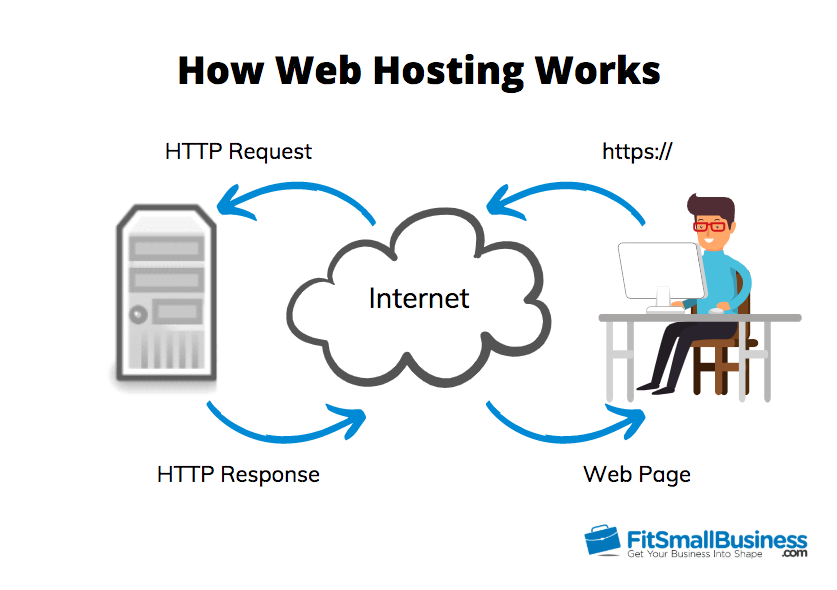Comprehensive Overview to Learning Serverstep for Effective Server Management
Evaluating the Key Differences Between Shared, VPS, and Devoted Webhosting to Establish the Best Fit for Your Business Objectives
In today's electronic landscape, selecting the proper web holding solution is critical for aligning with your service objectives. Shared holding deals a cost-effective access point for little ventures, while VPS hosting strikes an equilibrium in between performance and expense for those experiencing development.
Summary of Hosting Types
In the realm of web organizing, recognizing the different kinds offered is essential for making an informed decision customized to certain demands. Web holding largely encompasses shared holding, digital private servers (VPS), devoted organizing, and cloud organizing. Each type uses distinctive benefits and drawbacks, satisfying various company needs.
Shared organizing is the most economical remedy, where multiple internet sites reside on a single server. This choice is excellent for local business or individual web sites with small website traffic needs. VPS hosting offers a virtualized atmosphere, enabling higher control and personalization, making it ideal for expanding organizations with changing web traffic.
Devoted holding, on the other hand, provides an entire web server specifically for one internet site, giving durable efficiency and protection (SERVERSTEP). This kind is preferred by huge business or high-traffic sites that call for maximum resources and control
Finally, cloud hosting leverages a network of servers to disperse resources, making certain scalability and dependability. It is specifically helpful for organizations with unpredictable traffic patterns. Each hosting type presents unique characteristics, and understanding these distinctions is essential for picking the ideal service that aligns with your organization objectives.
Shared Hosting Discussed
Shared hosting is a preferred selection for individuals and small companies because of its affordability and simpleness - SERVERSTEP. In this hosting design, multiple web sites reside on a solitary server, sharing its sources such as CPU, RAM, and disk space. This setup enables organizing providers to supply competitive rates, making it an appealing alternative for those with restricted spending plans
One of the key benefits of common hosting is its straightforward configuration, typically come with by one-click setup of preferred content administration systems (CMS) like WordPress. This accessibility allows customers with minimal technical expertise to establish and manage their on-line visibility efficiently.
Nonetheless, shared hosting comes with particular limitations. Because sources are shared amongst multiple individuals, performance can be influenced, specifically during optimal website traffic times. Additionally, safety issues might emerge, as vulnerabilities in one site can potentially jeopardize others on the exact same web server.
Recognizing VPS Hosting
VPS organizing is regularly regarded as a happy medium between common hosting and dedicated servers, offering enhanced efficiency and better control. Digital Exclusive Web Servers (VPS) make use of virtualization modern technology to dividing a physical web server right into several isolated environments. Each VPS operates individually, with its own os, sources, and arrangements, permitting individuals to set up software application and make system adjustments according to their particular needs.
This kind of organizing is specifically appealing for services experiencing growth or requiring more sources than what shared holding can offer. With VPS hosting, official website customers gain from specialized CPU, RAM, and storage allotments, which lead to boosted internet site loading rates and overall efficiency. In addition, the seclusion from other users decreases the threat of server resource contention, enhancing stability.
Moreover, VPS organizing offers scalable solutions, enabling companies to readjust their resources easily as their needs evolve. This adaptability is vital for organizations that prepare for varying traffic patterns or seasonal needs. Overall, VPS holding strikes a balance between cost-effectiveness and source administration, making it a perfect selection for medium-sized companies seeking a adjustable and reliable holding remedy.
Benefits of Dedicated Hosting

Additionally, specialized hosting gives remarkable safety and security. With a dedicated server, services can execute customized safety and security procedures, including firewall programs, intrusion discovery systems, and protected accessibility protocols. This degree of customization aids protect delicate information from prospective violations, which is especially crucial for shopping and financial organizations.
Additionally, committed hosting facilitates total management control. Businesses can personalize equipment and software setups to fulfill their particular requirements, allowing them to optimize web server efficiency and source allocation effectively. This flexibility permits the installment of custom applications and the capability to range sources as business demands grow.
Selecting the Right Choice
Picking the ideal hosting option is important for companies intending to accomplish their certain objectives while maximizing efficiency and source monitoring. When considering shared, VPS, or dedicated hosting, companies should examine their special requirements, including web traffic volume, resource requirements, and budget constraints.

For larger enterprises or those with certain compliance needs, devoted hosting is often the best option. Ultimately, the choice should straighten with the company's lasting objectives, making certain that the selected organizing solution not just meets present needs but additionally accommodates future growth and scalability.
Conclusion
In conclusion, selecting the appropriate web hosting option joints on specific business purposes and prepared for development. Shared organizing is ideal for start-ups with minimal website traffic, while VPS organizing strikes an equilibrium in between expense and performance for growing businesses.
Shared hosting deals an affordable access factor for little enterprises, while VPS hosting strikes an equilibrium in between performance and price for those experiencing development. Web hosting primarily incorporates common holding, virtual exclusive web servers (VPS), dedicated holding, and cloud holding.This type of hosting is specifically appealing for organizations experiencing growth or requiring even more resources than what shared organizing can supply. In general, VPS hosting strikes an equilibrium between look at here cost-effectiveness and source administration, making it an optimal choice for medium-sized organizations looking for a trusted and adjustable organizing solution.
Shared hosting is ideal for start-ups with minimal web traffic, while VPS organizing strikes a balance in between expense and efficiency for growing organizations.